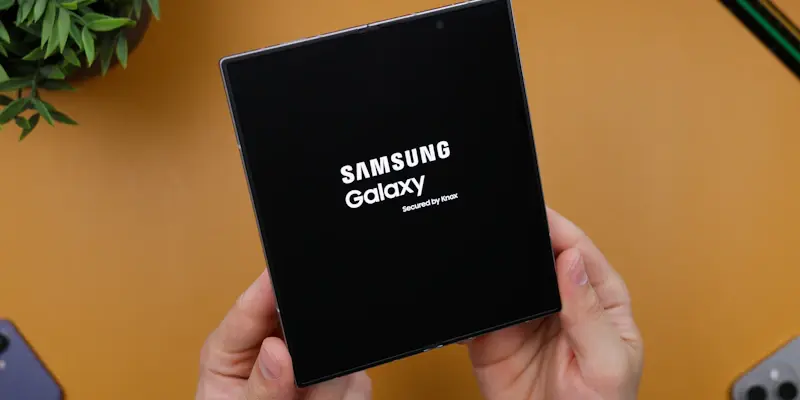In a world where technology evolves at a breakneck speed, accurate naming conventions play a crucial role in ensuring consumers understand the products they are purchasing. A recent example of this is the debate surrounding the appropriate nomenclature for tri-fold phones. Traditionally, these phones have been called tri-fold despite only featuring two folds, leading to significant confusion and inaccuracies in the terminologies used. Samsung recently addressed this issue during their Galaxy Unpacked presentation by introducing the term “multi-fold devices,” which aims to provide a more precise description of these next-generation foldables.
Addressing the Misalignment in Naming Conventions
The Inaccuracies of the Term “Tri-Fold”
The term “tri-fold” has been widely used to describe phones with more than one fold, such as the Huawei Mate X2. However, the name is misleading, as these devices typically only feature two hinges, rather than three. This inaccuracy not only raises eyebrows among consumers but also complicates the way these innovative gadgets are perceived in the market. Most people would expect a tri-fold device to have three distinct folds, but that is not the case with the current models. The imprecise terminology has thus created a disconnect between the product’s name and its actual functionality, necessitating a shift towards more accurate nomenclature.
Samsung’s decision to introduce “multi-fold devices” as a new category marks a significant departure from the flawed tri-fold terminology. This updated terminology not only addresses the inaccuracies but also provides flexibility for future designs. By departing from the rigid tri-fold label, Samsung opens the door to incorporating additional hinges and folds, which could potentially revolutionize the way these devices are developed and marketed. The term “multi-fold” better encapsulates the essence of a device that can have multiple folds, allowing for a wide range of new designs and functionalities.
Implications for Other Manufacturers
Samsung’s influence on the foldable phone market cannot be understated, which means that their shift to the term “multi-fold devices” is likely to have a ripple effect across the industry. Brands like OnePlus, Honor, and Xiaomi may follow suit, adopting the new terminology to ensure consistency and clarity for consumers. The adoption of “multi-fold” by other manufacturers could lead to a standardized nomenclature for foldable devices, making it easier for consumers to understand the differences between various products and make informed purchase decisions.
The transition to a unified terminology also signals a broader trend toward more accurate and marketable product names. By aligning the names of foldable devices with their actual functionality, manufacturers can avoid confusion and enhance the appeal of these innovative gadgets. Samsung’s use of the plural form “multi-fold devices” also hints at a diverse lineup of foldable products in the future, potentially including devices with varying numbers of folds and hinges. This move reflects Samsung’s confidence in the multi-fold concept and suggests that we may see a wide range of new foldable devices entering the market in the coming years.
The Importance of Precise and Marketable Terms
Enhancing Acceptance and Understanding
Accurate and marketable terms are crucial for the acceptance and understanding of new technologies. The term “multi-fold devices” not only provides a better description of the product but also carries fewer constraints on future designs. With a more accurate term in place, consumers can have a clear understanding of what to expect from these devices, reducing the chances of disappointment or confusion. By embracing a term that accurately represents the functionality of these foldable gadgets, Samsung is setting a precedent for other manufacturers to follow, thereby enhancing the overall consumer experience.
Moreover, precise names foster a sense of trust and reliability among consumers. When the product name accurately reflects its characteristics, people are more likely to feel confident in their purchase decisions. This is particularly important for cutting-edge technologies like multi-fold devices, which come with a higher price tag. Consumers need to feel that they are investing in a product that delivers on its promises, and accurate naming can play a vital role in building that trust. Samsung’s move to adopt a more accurate term is a step towards achieving that goal, ensuring that customers have a positive experience with their multi-fold devices.
The Potential Market Shifts
In a world where technology is advancing rapidly, accurate product naming conventions are essential for customers to understand what they are buying. A recent topic of discussion is the appropriate name for tri-fold phones. Traditionally, these phones have been called tri-fold despite having only two actual folds, causing confusion and misinterpretations. This mislabeling has contributed to misunderstandings about the product’s true functionality. Recognizing this issue, Samsung addressed it during their Galaxy Unpacked presentation. They introduced the term “multi-fold devices” to better describe these new types of foldable phones. This new nomenclature aims to be more accurate and help consumers better understand the products. By using “multi-fold devices,” Samsung hopes to eliminate any confusion caused by the previous terminology. This change emphasizes the importance of clear and precise product descriptions in the fast-paced tech industry. As technology continues to evolve, the need for accurate and comprehensible naming conventions will only grow.

